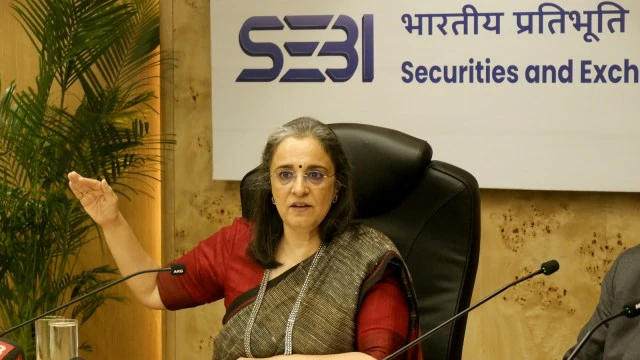What is the responsibility of a regulator? To bring a regulation before an incident or after it? The way capital market regulator Securities and Exchange Board of India (SEBI) has been reacting to certain market mis-happenings and formulating policy in its aftermath tells the tale of apathy, negligence and failure of its market intelligence. The initiative to formulate a restrictive F&O policy has come only after huge loss to retail investors. The intra day margin policy, OTP based share pledging mechanism, T+1 settlement system, segregation of client money into separate account, monthly settlement of trading account etc. have come as an aftermath of certain incident. To the dismay of investors, SEBI guidelines says that the regulator is not responsible for any loss occurring due to regulatory action. Let us discuss these in a bit detail.
The retails investors were losing in F&O and poor SEBI had no clue: The Securities and Exchange Board of India (SEBI) published a Research Paper (Study) titled Analysis of Profit and Loss of Individual Traders dealing in Equity F&O Segment on 25th Jan 2023. The paper said that 9 out of 10 retail investors were making losses in F&O segment of capital market. After this study, the trading portals started mentioning this as a statutory warning like you see some scribbles at cigarette packs. The retail investors were losing money to algo trading foreign giants like Jane Street and the money was flowing abroad. After at least one year, when the retail investors had lost more than 50000 crores, SEBI ‘thought’ of doing something in the ‘interest of retail investors’. It asked for suggestions from market participants. Nothing concrete has come till date. Almost two years have passed since the publication of study paper. Long live our pro-active stock market regulator SEBI.
Loss is a part of capital market, lose it in intra-day and enjoy: Intra-day margin policy has the same story. How much margin? What should be the cut off time? Everybody knows that the brokers have been providing up to twenty times intra-day margin to the trader ‘free of cost’. And what would be the cost? The retail investors were availing this margin facility and losing the entire capital by the end of the day. The brokers were making money whether the retailers win or lose. The regulatory authorities may take up this menace after revolutionizing F&O regulatory framework. Till then, they have implemented real time collection of margins. It may sound a great move but it is completely ineffective.
OTP based pledging mechanism..loopholes are still there :The capital market regulator SEBI revised share pledging mechanism only after numerous demat frauds. There was not any mechanism for client to know the pledging status of its shares. No intimation on mobile number or e-mail of the client. After several incident of unauthorized share pledging, SEBI came up with OTP based share pledging mechanism. Now you must authorize sale or pledge of shares through OTP. The client receives a pledge/share release link at his mobile number and authorizes it. But this system has several loopholes. It can’t be believed that the regulator is unaware of these loopholes. Is it waiting for some incident to happen before it regulates further?
T+1, better late than never: Traditionally, the brokers use to keep all money in one account, called client account. It used to contain proprietary money as well as client’s money. They used to park almost all money lying with client account into overnight fund/ liquid fund and earn 6 percent annual return over unused money. This was well known to all. Could you imagine the amount of income generated by broking giants like Zerodha, Groww and ICICI direct out of such overnight parking? The regulator has come up with T+1 settlement and segregation of clients’ money when these discount brokers became billionaires.
The story behind monthly settlement: Let me tell you the story of monthly settlement of client account. These days, the amount of money lying idle into your trading account is credited back onto your bank account on first Friday of every month. Why this generosity? The NSE Default Committee guideline says that if the money is remaining idle and no trade has happened in a trading account, it won’t pay even a single penny to the client in case of default by a broker. The NSE Default Committee guidelines have been there for so many years, but the monthly settlement mechanism has come only a few months back. The brokers were earning out of clients’ money and in case of default, the client was not entitled to even a single penny. The regulation has come only after several adverse observations by Hon’ble Securities and Appellate Tribunal.
Loss due to regulatory action is ‘prasadam’ … accept that with due reverence: And last but not the least, if you incur any loss due to regulatory action of SEBI, the regulator won’t be held responsible. For example, if SEBI shuts down the terminal of a broker and the open positions are not closed by the Exchange or Clearing House, SEBI can’t be held responsible. Even if the retail clients of the broker lose their lifetime saving due to regulatory action, there is no escape for them. SEBI would say that it was the karmas of the clients which brought misery to them. Disgusting!



